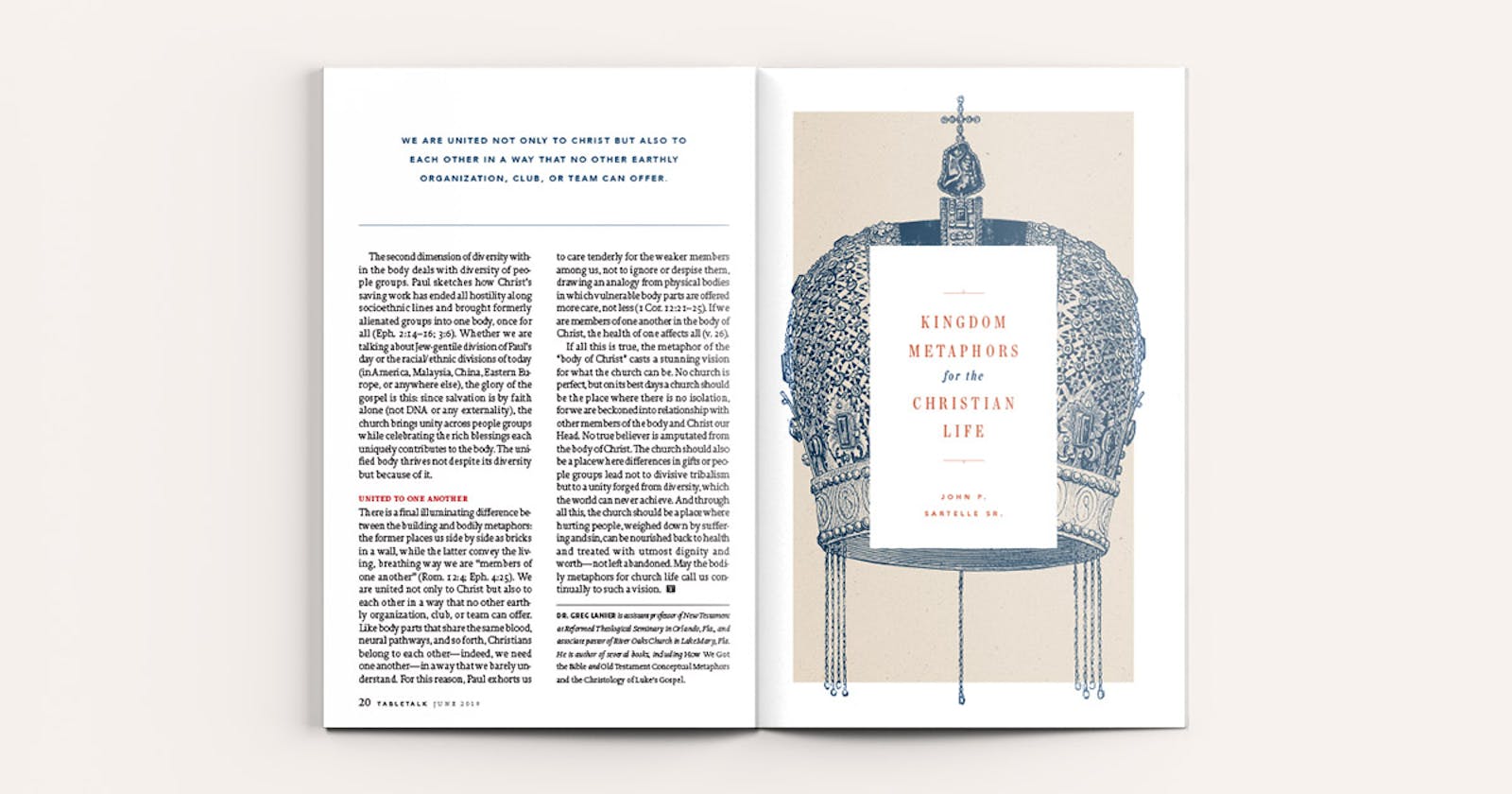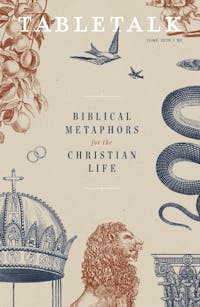
Request your free, three-month trial to Tabletalk magazine. You’ll receive the print issue monthly and gain immediate digital access to decades of archives. This trial is risk-free. No credit card required.
Try Tabletalk NowAlready receive Tabletalk magazine every month?
Verify your email address to gain unlimited access.
Jesus had just been baptized, and a glorious baptism it was. “The heavens were opened, and the Holy Spirit descended on Him in bodily form, like a dove; and a voice came from heaven, ‘You are my beloved Son; with you I am well pleased’ ” (Luke 3:21–22). Immediately, this second Adam was led into the wilderness to fast and to contend with Satan himself. The first Adam had failed in the garden, and this new Adam, the Messiah King from glory, would take up the battle in the desert.
There in the wilderness was Satan, in all of his splendor and power, coming to test the incarnate Son from heaven.
And the devil took him up and showed him all the kingdoms of the world in a moment of time, and said to him, “To you I will give all this authority and their glory, for it has been delivered to me, and I give it to whom I will. If you, then, will worship me, it will all be yours.” (Luke 4:5–7)
In one panoramic instant, Satan showed Jesus all the kingdoms of the world. “Jesus, You want to rule these empires. I will give them to You. Do it my way, Jesus; it is easier. There’s no need for conflict. Just bow down to me.”
Satan is not omniscient. He did not know the details of God’s plan. The Son of God and the Son of Man from David’s lineage would establish a kingdom over which He would reign forever. Make no mistake—this Messiah to whom Satan offered the kingdoms of this world was indeed about a kingdom—His kingdom. After rejecting Satan’s offer, how did He begin His preaching? “The time is fulfilled, and the kingdom of God is at hand; repent and believe in the gospel” (Mark 1:15).
Now, fast-forward to Rome some thirty years later. Rome was the epicenter of the world. This was certainly one of the empires that Satan had laid before Jesus. The Apostle Peter was writing from this new Babylon to the churches he held dear. He reminded them that they were “a holy nation” (1 Peter 2:9). Peter saw individual churches in specific provinces, towns, and cities. But he also saw these followers of Jesus as one nation, as a kingdom. Where did he get that? Jesus taught him. Peter had heard this from Jesus over and over again. We see it on every page of the Gospels. Among the kingdoms of the world, there was a new kingdom. It was a kingdom whose beginning was in another realm, not of this world. The King of this kingdom was the Son of God incarnate. This kingdom had its origin in the glory of eternity.
Whence came the citizens of this “holy nation”? “But you are . . . a holy nation, a people for his own possession, that you may proclaim the excellencies of him who called you out of darkness into his marvelous light” (2:9). Every citizen of this holy nation came from the very kingdoms of darkness that Satan had shown Jesus.
So, how can they be called a holy nation if they came from kingdoms under Satan’s dark rule where the citizens were the exact opposite of holy? Peter reminded them they had been redeemed “with the precious blood of Christ, like that of a lamb without blemish or spot” (1:19). They were just and holy, washed clean from the guilt of their sin by the sacrifice of God’s lamb. They were not only holy (righteous) in their position before the justice of God, but they were also holy in their conduct. Having been born again, they were in an intimate relationship with God: “As he who called you is holy, you also be holy in all your conduct, since it is written, ‘You shall be holy, for I am holy’ ” (1:15–16).

To the great consternation of Satan, Jesus was taking people from his dark kingdoms and building His kingdom of light and righteousness. Jesus was destroying the darkness that had invaded His creation, using the very people who had once been a part of that darkness. Now they were citizens of the kingdom of God living as aliens among the kingdoms of this world and bringing light to dark places.
Beloved, I urge you as sojourners and exiles to abstain from the passions of the flesh, which wage war against your soul. Keep your conduct among the Gentiles honorable, so that when they speak against you as evildoers, they may see your good deeds and glorify God on the day of visitation. (2:11–12)
Think about it. Every nation in the world has citizens from another nation, a holy nation, living in their midst.
Peter’s fellow Apostle, Paul, called these holy citizens “ambassadors for Christ.” They are emissaries for their King in the earthly nations that Satan had offered Jesus. “Therefore, we are ambassadors for Christ, God making his appeal through us” (2 Cor. 5:20). Those who had been born in rebellion against God to Satan’s great joy were now happily speaking on behalf of God’s mercy and grace, crying out to lost and hurting people: “Be reconciled to God.”
In 1972, my late wife, Janet, and I spent two weeks driving through Mexico with two friends. It was my first visit to a foreign country. Every day I felt some discomfort because I was constantly aware that I was an alien. That is how we sometimes feel as Christians even in the United States. We love our country. We love our history and our constitution, but we don’t feel at home in our secular culture. The social mores of our society anchored in materialism, sexual immorality, intellectual elitism, self-centered pride, postmodern cynicism, idolatry, and atheism remind us that we are indeed aliens whose citizenship is in the kingdom of Jesus Christ. We are humbled as we were once willing participants in that ungodly culture, having been rescued only by the grace of God. We are compelled by that grace to be ambassadors who bring the light of the gospel into the darkness. Yet, all the while we live as aliens with a joy, knowing we are pilgrims on our way home.
